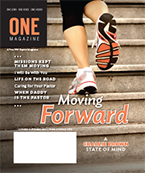
October-
November 2016
Moving Forward
------------------
|
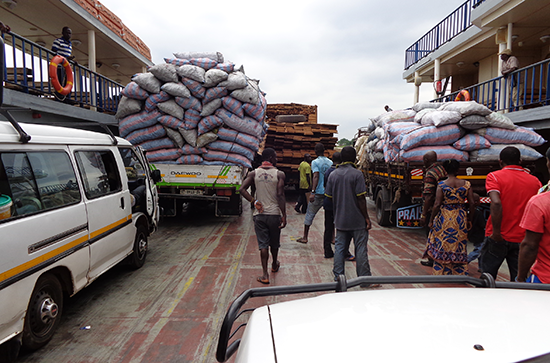





Responding to the Great Commission of Our Lord
By Philip K. Bonsu
As the old proverb goes, “better late than never.” After nearly 60 years of Free Will Baptist presence in Ivory Coast (now Côte d’Ivoire) and the official departure of the foreign missionaries a decade ago, the Ivorian National Association has finally come to terms with the need to carry on the Great Commission of our Lord. The Association of Free Will Baptist Churches in Ivory Coast (AEEBLCI) is grateful to the Lord and International Missions for all the missionaries who came to serve and those who continue to serve in different capacities and partner with us.
Though we still need this partnership, it is first and foremost the responsibility of the association to evangelize and plant churches inside and outside Ivory Coast in fulfilling the Great Commission. In accordance with this vision, the Executive Board set up a missions committee to run the affairs of national and foreign missions. The committee is composed of a national and an international chairman, a treasurer, a secretary, and a member in charge of logistics.
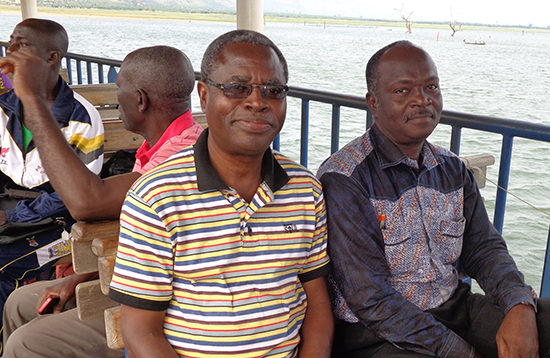
Photo: Author Philip Bonsu (left) with Samuel Outtera.
With regard to evangelism and church planting at the national level, the committee, upon reflection, has realized the need for a paradigm shift. In our evangelism and church planting strategy, we need to depart from the pattern of going from villages to towns and then cities. The committee is of the opinion that it will be more cost effective and easier for churches in towns and cities to start and support churches in the villages than the other way around.
Since we belong to the Free Will Baptist family and work in partnership, the action plan of the national evangelism committee has the purpose of helping achieve the 20 by 2020 plan adopted by Free Will Baptist International Missions.
Strategy for National Mission
-
Target cities and strategic towns;
-
Rely on Free Will Baptist believers who are state employees or self-employed, residing in towns and cities without a FWB presence;
-
Secure land for construction of places of worship.
The question then, is how is the church going to finance this noble project, which seeks to obey the Lord’s command?
It is encouraging to note the church is, first of all, counting on its own resources to finance this project before turning to others for help. The following are the financial and material resources to help the association execute its missionary plan:
-
Establish an evangelism fund for the association. Each local church contributes to the fund.
-
Regional associations
-
Denominational youth organization
-
Denominational women’s organization
-
Bible institute
-
Ghanaian believers
-
Support from our partners (Free Will Baptist International Mission and other Free Will Baptist churches around the world).
The Church in Ivory Coast is partnering with Free Will Baptist International Missions to assist us with this project. Our brothers in Ghana also will contribute in different ways for the progress of the work there.
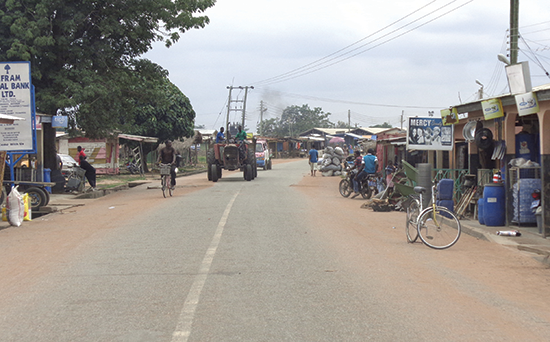
New Work in Ghana
The decision to start a work in Ghana came out of a “Macedonian call.” When looking for a partner to help plant a church in one of the needy and neglected areas in Ghana, retired pastor Thomas Appiah contacted Kenneth Eagleton, former missionary to Ivory Coast and regional director for Africa and Latin America (now living in Brazil). Dr. Eagleton referred him to the Ivorian National Executive Board.
In August 2014, Pastor Appiah was invited to our annual conference in Doropo, Ivory Coast, and was introduced as someone interested in partnering with the Association to start Free Will Baptist churches in Ghana. After his visit, two pastors, Noufé Silas and Philip Bonsu, were sent by the Executive Committee to Ghana on a three-day visit to become better acquainted with Pastor Appiah and to survey the possibility for a new mission field.
Pastor Appiah is Ghanaian and worked with Southern Baptists in that country for several years as a pastor and as a board member. His area was evangelism and church planting. He took an anticipated retirement due primarily to the bad health of his wife, who passed on about four years ago. A ceremony was held in his honor at their national conference for a peaceful retirement.
Time and space will not allow us to give a full account of Pastor Appiah’s testimony. The following words, however, epitomize who he is—trustworthy, humble, passionate for souls, and with a clear vision for church planting. Therefore, the decision to start a work in Ghana was informed by the written report on the visit to Ghana by the two scouts.
About the Kwahu North District
The Kwahu North District, where the new church is being planted, is located in eastern Ghana between the Afram and Volta rivers and has an approximate population of 218,000. Donkorkrom is the capital of the district where work has started and is ongoing. About 25% of the population lives around the Donkorkrom market. The rest of the population is scattered throughout villages and hamlets spread over the inland area, as well as hundreds of villages on the island, which can only be reached by boat or canoe. The district is largely agricultural, with about 80% of the population engaged in farming yam, maize, cassava, and other crops, and a few people engaged in trading and fishing.
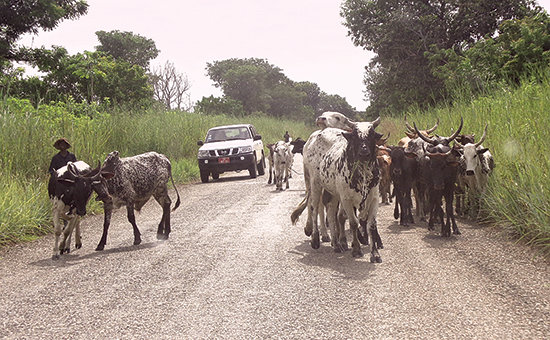
This region is multi-tribal. The major tribes are the Krobos, the Akuapims, and the Ewes, among other smaller tribes. This area of Ghana communicates with a number of different languages. Twi is the “common language” almost everyone can speak and understand. Twi is unofficially second only to the English language and is spoken throughout Ghana. In areas where people are uncomfortable speaking English, Twi becomes the alternative. It is therefore, an important advantage to know Twi if one wants to work in Ghana.
Needs and Challenges
Many needs and challenges confront inhabitants in the area where the national association has chosen to minister. The people need a true relationship with God through Christ. Though the vast majority of the population claims to be Christian, many are nominal. The dominant churches in the area are Presbyterian, Catholic, and Pentecostal, with a few Muslims scattered throughout the region. No Baptist churches exist in the district.
The needs go far beyond the spiritual, however. The region needs adequate infrastructure. The area lacks a proper transportation system and good roads for free and quick circulation of people and goods. A ferry transports people to and from the district across the Afram River. But whenever the ferry has a problem, activities come to a halt since no bridge is available to carry people and vehicles across the big river.
Poor drainage leads to flooding, especially during the rainy season. Farmers lack incentives to boost them to work more and produce more to feed themselves and to contribute in feeding the entire region and country. Part of the problem is a lack of markets where farmers can sell their produce.
Children experience a high level of illiteracy. According to a survey of the area conducted by World Vision, only 3% of 11-year-old children are able to read.
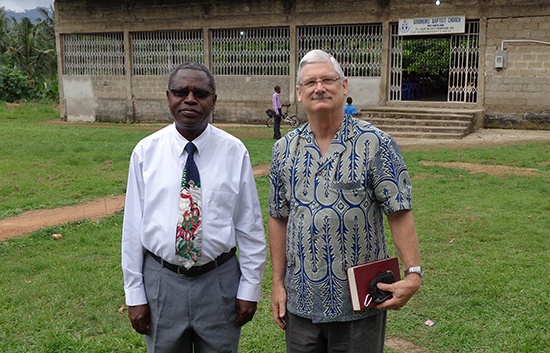
Photo: Author Philip Bonsu (left) with Regional Director Kenneth Eagleton.
Updates From the Field
A house for the pastor, which also serves also as a place of worship, was secured at the beginning of the year. Pastor Appiah presently resides in that house at Donkorkrom. House-to-house evangelism started in May with a team of three trained by the pastor.
Sixteen people, including two families and children, are attending services. An evangelism crusade is scheduled for the area. We are grateful to the Lord for what He is doing and enthused to carry on this work. With the Lord on our side, and with all hands on deck, we will sow in tears but reap with joy.
About the Author: Philip Bonsu is assistant director and teacher at Free Will Baptist Bible Institute in Bouna, Côte d’Ivoire. He and his wife Claudine have two children. Philip graduated from the Bible Institute and earned a Master’s degree in Bible from a seminary in Abidjan. He worked in a church-planting ministry with another denomination in northern Ghana before returning to Ivory Coast. He is a member of the missions committee of the association and is in charge of outreach to Ghana. Learn more: www.fwbgo.com.
|
|

